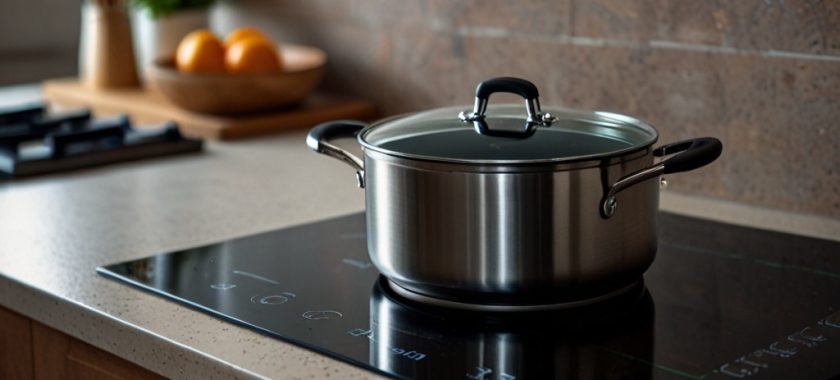In today’s modern kitchens, induction cooktops have become increasingly popular due to their energy efficiency, precision, and safety. At the heart of these advanced appliances lies a critical component: the induction sensor. This sensor is responsible for detecting the size of the cookware and adjusting the energy output accordingly. However, like all technology, induction sensors are not immune to malfunctions, which can lead to a host of issues in your daily cooking routine.
The Role of Induction Sensors
Induction sensors work by detecting the size of the cookware placed on the cooktop. This ensures that the energy output is precisely matched to the size of the pot or pan, making cooking more efficient and preventing wasted energy. The sensor’s ability to accurately measure the cookware’s size is what allows induction cooktops to heat only the area where the cookware is in contact, rather than the entire cooking zone.
When functioning correctly, these sensors make induction cooktops a dream to work with. They allow for quick heating, consistent cooking, and reduced energy consumption. However, when these sensors malfunction, the experience can quickly turn into a nightmare.
Common Issues with Induction Sensors
⠀
- Inconsistent Heating:
One of the most common signs of a malfunctioning induction sensor is inconsistent heating. If your cooktop is unable to correctly identify the size of your cookware, it may either underheat or overheat the contents. This can lead to unevenly cooked food or, in some cases, cause the cookware to overheat, which may damage both the cooktop and the dish itself.
⠀
- Cooktop Not Detecting Cookware:
Another issue arises when the cooktop fails to detect the presence of cookware altogether. This typically happens when the sensor cannot establish contact with the pot or pan due to an obstruction, improper cookware material, or a sensor malfunction. If the sensor cannot detect the cookware, the cooktop won’t activate, leaving you unable to cook.
⠀
- Incorrect Sizing:
Sometimes, the sensor may detect the cookware but incorrectly gauge its size. This can cause the cooktop to apply too much or too little energy, resulting in inefficient cooking. In severe cases, this could lead to damage to both the cookware and the induction cooktop itself.
⠀
- Error Codes:
Modern induction cooktops often display error codes when something goes wrong. If your induction sensor is malfunctioning, you may notice error codes related to the sensor, such as codes indicating a problem with cookware detection or energy output calibration.
⠀
- Complete Failure:
In rare cases, the induction sensor may fail completely, rendering the cooktop unusable. When this happens, it’s usually a sign of a deeper issue within the appliance, and immediate professional assistance is required.
⠀
Causes of Sensor Malfunctions
⠀
- Wear and Tear:
Like all electronic components, induction sensors can wear out over time. Constant exposure to heat and the demands of daily use can cause the sensors to degrade, leading to malfunctions.
⠀
- Physical Damage:
Accidental impacts or drops can damage the sensor or its connections, leading to improper functioning. Even something as simple as a heavy pan being dropped on the cooktop can cause internal damage to the sensor.
⠀
- Electrical Issues:
Fluctuations in the power supply, short circuits, or other electrical issues can cause the sensor to malfunction. This is particularly common in areas with unstable power grids.
⠀
- Software Glitches:
Induction cooktops often rely on software to regulate the sensor’s functions. A software glitch or corruption can lead to errors in sensor readings, causing the cooktop to behave unpredictably.
⠀
- Improper Installation or Maintenance:
If the cooktop was not installed correctly or hasn’t been maintained properly, the sensors might not function as intended. Regular cleaning and proper installation are essential to ensure that the sensors work accurately.
⠀
Solutions and Prevention
⠀
- Regular Maintenance:
Regularly cleaning your cooktop and ensuring that there is no residue or buildup around the sensors can help prevent malfunctions. It’s also advisable to schedule regular maintenance checks with a professional to ensure that all components are functioning correctly.
⠀
- Use Proper Cookware:
Induction cooktops require specific types of cookware, usually magnetic-based. Using the right cookware can help the sensors function properly. Always check the manufacturer’s guidelines to ensure your cookware is compatible with your cooktop.
⠀
- Prompt Repairs:
At the first sign of trouble, it’s crucial to address the issue promptly. Ignoring sensor problems can lead to more severe damage over time, which could result in a complete cooktop failure.
⠀
- Professional Inspection:
If you suspect that your induction sensors are malfunctioning, it’s best to call in a professional to diagnose and fix the problem. Attempting to repair the sensors yourself could lead to further damage and void any warranties.
Why Choose Chula Vista Appliance Repair Company?
When your induction cooktop isn’t working as it should, you need reliable, professional help. That’s where Chula Vista Appliance Repair Company comes in. Our team of certified technicians is highly experienced in diagnosing and repairing induction cooktops, including sensor malfunctions. We use state-of-the-art tools and techniques to ensure that your cooktop is back to optimal performance in no time.
Don’t let a faulty induction sensor disrupt your cooking. Call Chula Vista Appliance Repair Company today for a quick, efficient, and affordable repair service. We’re here to keep your kitchen running smoothly.
Reach out to us at (619) 880-5508 or visit our website to schedule a repair service today!


